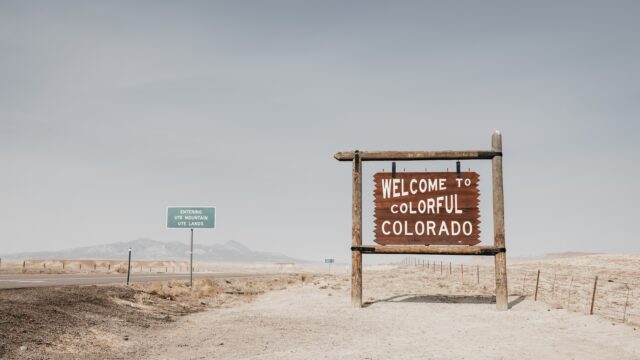英語には一見同じようでも単数形と複数形ではかなり、あるいはまったく意味が異なる名詞があります。
英語の穴埋め問題や読解問題でよく見られます。これに気付かないと勘違いして読み進めることになります。
今回はよく出題される代表的な単語を紹介します。
単数と複数で意味が異なる単語
1.arm(腕) arms(武器)
2.ash(灰) ashes(遺骨、灰塵)
3.custom(習慣) customs(税関)
4.force(力) forces(軍隊、軍事力)
5.advice(忠告) advices(通知)
6.air(空気) airs(気取り)
7.good(善、幸福、利益) goods(商品)
8.manner(方法) manners(行儀)
9.sand(砂) sands(砂漠、砂浜)
10.ruin(破滅) ruins(遺跡、廃墟)
11.spectacle(光景) spectacles(めがね)
12.work(仕事) works(作品、工場)
13.color(色) colors(旗色、軍旗)
14.day(日) days(時代)
15.pain(痛み、苦痛) pains(苦労、骨折り)
16.quarter(1/4) quarters(区域)
17.spirit(精神) spirits(酒、気分)
では、例文を見ていきましょう。
1.arm(腕) arms(武器)
In anger, she took the man by the arm.
「カッとなって彼女はその男の手をつかんだ。」
(armは肩から手首までを意味するのでこういった訳もありです。)
“Farewell to Arms” is Hemingway’s masterpiece.
「『武器よさらば』はヘミングウェーの代表作だ。」
He held his wounded little sister in his arms.
「彼は傷ついた妹を腕に抱いた。」
(この場合のarmsはそのまま「両腕」を意味します。)
2.ash(灰) ashes(遺骨、灰塵)
Cigarette ash was scattered on the table.
「テーブルの上にタバコの灰が散らかっていた。」
The town of Taketa returned to ashes in the Satsuma Rebellion.
「西南戦争で竹田の町は灰塵に帰した。」
3.custom(習慣) customs(税関、関税)
My wife makes it her custom to take a shower in the morning.
「私の妻は毎朝シャワーを浴びることを習慣にしています。」
The US government has imposed heavy customs on Chinese products.
「合衆国政府は中国製品に重い関税を課した。」
4.force(力) forces(軍隊、軍事力)
“Believe in your force! My son.”
「息子よ自分の力を信じるんだ。」
The Japanese government has decided to use forces to defend the islands.
「日本政府は、島々を守るために軍事力の行使を決断した。」
5.advice(忠告) advices(通知)
Inoue’s advice to Tetsutaro was that he play fairly anyway.
「井上の鉄太郎への忠告は『とにかく、正々堂々と勝負しろ。』であった。」
I received notices from the city to be vaccinated at the designated venue.
「市から指定会場でワクチンの接種を受けるようにとの通知がありました。」
6.air(空気) airs(気取り)
This soccer ball needs some air. It’s too soft to kick.
「このサッカーボール少し空気を入れないと。柔らかすぎて蹴れないよ。」
Shinobu put on airs of indifference to him at all.
「しのぶは彼に対して全く無関心の素振りをした。」
7.good(幸福、利益) goods(商品)
She told that for her sons’ own good.
「彼女は息子たちのためにそう言った。」
Various goods are sold in the morning market in Takayama.
「高山の朝市ではいろいろな商品が売られている。」
8.manner(方法) manners(行儀、風習、作法)
The life as a samurai can be seen in the manner of his death.
「侍の生涯はその死にざまに示されるのだ。」
Toyota employees are trained in the Ogasawara style manners.
「トヨタの社員は小笠原流の作法で訓練されている。」
9.sand(砂) sands(砂漠、砂浜)
Ouch! I got sand in my eye.
「痛い! 目に砂が入った。」
After exiting the jungle, they saw miles of white sands.
ジャングルを出た彼らが見たのは何処までも続く白い砂浜だった。
10.ruin(破滅) ruins(遺跡、廃墟)
“Oh John! You have ruined my dish since you added salt.”
「ジョン!あなたが塩を入れたから料理が台無しよ。」
(ruinは動詞として扱われる事が多い。)
The ruins of a town by the volcanic eruption.
「その火山噴火によるある町の廃墟」
11.spectacle(光景) spectacles(めがね)
A magnificent spectacle of Mt. Norikura seen from Takayama City in winter.
「高山から見る冬の乗鞍岳の壮大な眺め」
“Where are my spectacles?” Grandpa asked, putting it on his head.
「わしのメガネはどこじゃ?自分の頭にのせながら爺ちゃんが尋ねた。」
(spectaclesは死語に近いかも。glassesを使いましょう。)
12.work(仕事、会社、職場) works(作品、工場)
Work with all your concentration in any fight!
「どんな闘いにも全集中で臨め!」
(workは動詞として使われることがほとんど。)
When do you leave for work.
「会社にはいつも何時に出かけるんですか?」
The pictures on the wall are my son’s own works.
「壁の絵は私の息子が書いたものなんですよ。キリッ。」
Pittsburgh, Pennsylvania is famous for many ironworks.
「ペンシルバニア州のピッツバーグは、多くの製鉄所で有名です。」
13.color(色) colors(旗色、軍旗)
“What color is your boyfriend’s car? “ ”It’s violet.”
「ねえ、彼氏の車何色?」 「紫色よ。」
Nobunaga yelled. “Will you be an ally or an enemy? Clarify your colors! “
「信長は叫んだ。『味方になるか敵につくか? お主の旗色を明らかにせい! 』」
14.day(日) days(時代)
“What day of the week today?”
「今日は何曜日じゃったかな?」
The days go around, repeating encounters and farewells.
「まわる、まわるよ、時代はまわる。出会いと別れを繰り返し。」
15.pain(痛み、苦痛) pains(苦労、骨折り)
It caused my wife a great deal of pain to part with the rooster Piiko at that time.
「当時の私の妻にとって、その雄鶏ピーコと別れるのはとてもつらいことでした。」
Foreign Minister Komura Jutaro at the time made a great effort to conclude the Treaty of Portsmouth.
「当時の外務大臣小村寿太郎はポーツマス条約を締結しようと多大な努力を払った。」
16.quarter(1/4) quarters(区域)
“What’s the time? “ “It’s a quarter after five.”
「今何時?」「5時15分過ぎだよ。」
There was a huge pleasure quarters behind Sensoji Temple at that time.
「当時、浅草寺の裏には巨大な歓楽街があった。」
17.spirit(精神) spirits(酒、気分)
The people thought that Lindberg’s feat embodied the American spirit.
「国民はリンドバーグの偉業がアメリカの精神を体現していると考えました。」
Bringing spirits into this dormitory is strictly prohibited.
「この寮に酒を持ち込むことは固く禁じられています。」
今回は以上です。
ご精読いただきありがとうございました。











